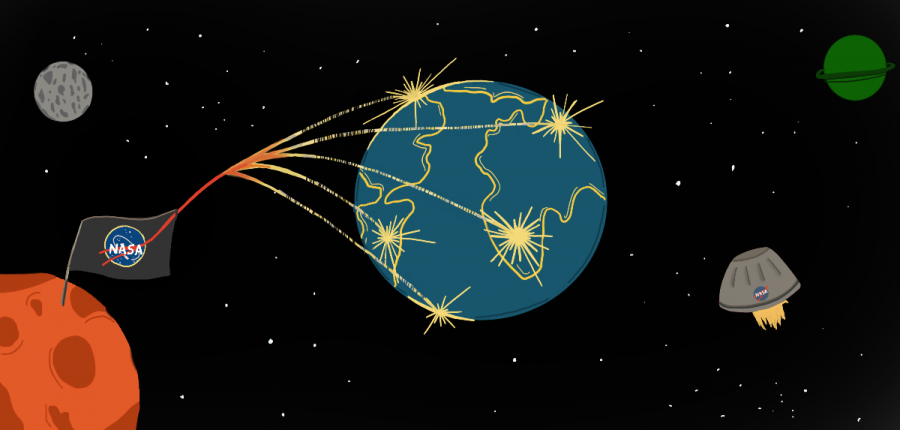Funding for Space Exploration
March 19, 2021
From the Perseverance rover landing on Mars in February to the explosion of the SpaceX Starship prototype just a few weeks later, it is a thrilling time for space travel. The envelope is being pushed with bolder and bolder missions that would never have even been thought to be possible a decade ago, but with this development comes a high price. SpaceX and other large private corporations are currently at the forefront of space exploration, but NASA still gets a significant amount of public funding, which can be controversial.
One argument against space exploration funding is that there are so many people on our own planet that live in poverty and lack access to basic needs, which should take priority over launching expensive objects up into the atmosphere and beyond for the sake of science.
The NASA budget was $22.6 billion in the year 2020, which is money that could have been spent feeding the hungry, improving public education or any other number of goals. However, to put this number into perspective, the NASA budget accounted for less than .5% of the US government’s spending in 2020. While over 22 billion dollars is an almost unfathomable amount of money, it is insignificant when compared to what this country spends money on in a larger sense.
In comparison, the US defense budget for the year 2020 was 721.5 billion dollars, which is drastically higher than other nations and is an absurd percentage of US spending. In the grand scheme of things that the US government spends money on, space travel is probably one of the most inspiring, uniting, and productive usages of money and resources.
When asked about what makes space exploration meaningful, Russell Durkee, a physics teacher and astronomer at Minnetonka High School, said that “Space travel gives people a really difficult problem to solve; it pushes the envelope for discovery and engineering.”
This is certainly one way to look at the importance of space travel: the human desire to explore and expand our knowledge of the universe.
In 1961, John F. Kennedy set forth the bold task of the American people landing a man on the moon by the end of the decade. This sounded unlikely and even impossible at first, but with incredible collaboration and technological innovation like never before, humanity put men on the moon in 1969. The global political tensions were certainly driving this race for the sake of prestige, but there was also a sense of accomplishing a huge task as a species: it was a moment where people could come together and take pride in the progress of humans.
John F. Kennedy said in his famous moon pledge speech that “We choose to go to the moon in this decade and do the other things, not because they are easy, but because they are hard.”
The difficulty and risk involved with space travel is what makes it exciting and inspiring, and for that reason, it is worthy of at least half a percent of this nation’s budget.
Not only does space travel fulfill a sense of discovery, but it also brings tangible benefits to modern science and our society as a whole.
Durkee said that space exploration “drives technology forward to do an extremely difficult job. It brings together enormous numbers of people with different expertises to do a really difficult thing and that really inspires humans.”
Space travel is quite amazing in the extent that it brings so many scientific disciplines together for a common goal, and the findings from missions can often benefit many disciplines at once. The purpose of the Perseverance rover was to study the rock record on Mars as a step towards future human exploration, but it isn’t just the field of geology that benefits. In getting a rover to land successfully on another planet, there must be a seamless collaboration amongst physicists, astronomers, chemists, computer engineers and many others. This great effort to do such a difficult and impressive task is what makes space travel worth the time and resources we spend.
Even if not for the sake of human progress and scientific knowledge, the missions that SpaceX is doing with payloads bring commercial benefit, especially with Starlink (a satellite constellation) currently in progress.
Additionally, any time there are a lot of people employed for a task, there are jobs created and the economy is stimulated. The money spent on all the exciting space travel happening in this age isn’t just sent away for good when the rockets launch, instead it boosts our economy and provides the resources for humanity to do amazing things.






























